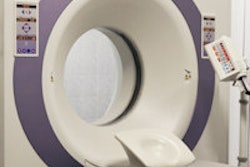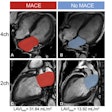Wednesday, December 3 | 11:20 a.m.-11:30 a.m. | SSK14-06 | Room E450B
The founder of U.K. software developer Image Analysis will present dynamic contrast-enhanced MRI quantification (DEMRIQ), a method for quantitative assessment of treatment response in patients with inflammatory arthritis.Inflammatory arthritis is an underresearched condition, and there is no standardized scoring or visualization tool for assessing the effect of treatment in musculoskeletal imaging studies, said presenter Olga Kubassova, PhD, founder and CEO of Image Analysis.
"The clinical and clinical research world has a couple of ways to assess MRI data [that] are mainly based on 'looking' at the images and using a primitive zero-to-three system to [determine] how much inflammation and damage is done to the joint," Kubassova told AuntMinnie.com.
The zero-to-three methodology of the widely used rheumatoid arthritis MRI scoring (RAMRIS) system is a discrete system that leaves a 25% gap in measuring levels of joint inflammation. Treatment often results in changes at 5% to 10% levels, Kubassova said.
"Further, because two people are 'looking' at the data, there are only a few scorers in the world capable of doing it, and even between them the variation in judgment is expected to be 10% to 20%," she said. "If you now add 15% variation to a 25% gap in scores, there is no way you can spot early inflammatory-related changes and diseases such as rheumatoid arthritis are not assessed properly."
Enter DEMRIQ, software that has been in development for over 10 years to provide automated assessment of treatment response.
"DEMRIQ allows [users] to measure even the slightest variations in inflammatory activity and to do it with the highest level of reproducibility," she said.
Kubassova said that researchers, clinicians, and medical professionals in Denmark, U.K., Italy, and Germany have spent over five years validating DEMRIQ. In short- and long-term clinical studies and using various cohorts of patients, they "found that DEMRIQ allows early differentiation of patient subgroups, earlier diagnosis, and more reliable measurement of treatment effect."




















